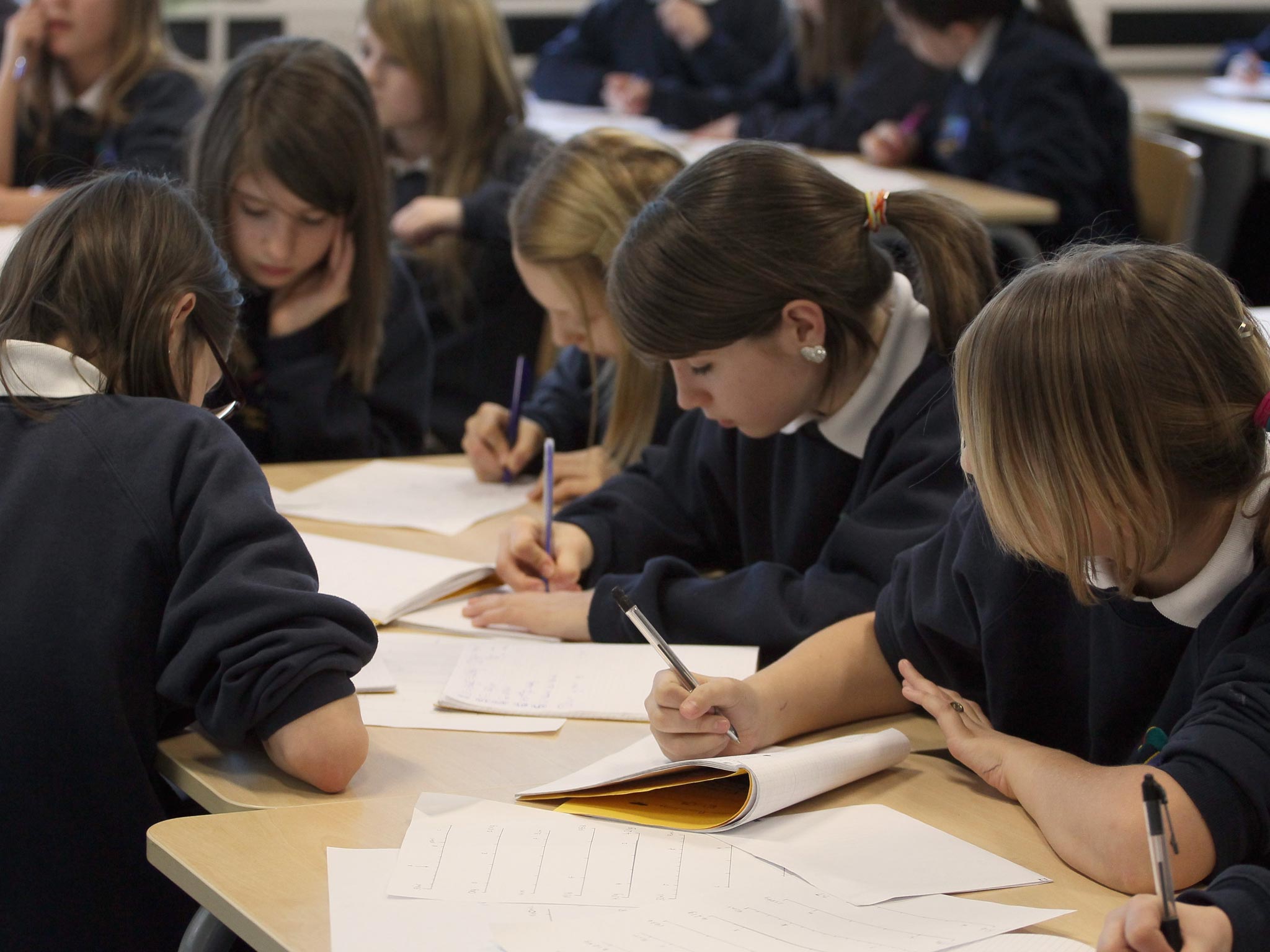Revealed: Police investigate lost £162,000 at academy school
Education Funding Agency seeking to recover money claimed to have been misspent by Glendene Arts Academy in Co Durham

Police are investigating allegations of serious financial mismanagement at one of the Government’s academy schools, fuelling demands for stricter controls over their financing, The Independent has learnt.
Officials from the Education Funding Agency, which oversees the funding of free schools and academies, are seeking to recover at least £162,000 claimed to have been misspent by Glendene Arts Academy, a specialist visual arts academy for pupils with special needs in Easington Colliery, Co Durham.
A Department for Education (DfE) investigation report followed an inspection by auditors last year, prompted by whistle-blower claims over the use of academy resources to pay the salaries of employees as well as the running costs of a private company. The report, which was dated November 2013, was published only last Friday.
It prompted demands from teachers’ leaders for a tighter accountability regime to monitor the finances of free schools and academies, which have been pushed by Education Secretary Michael Gove.
Kevin Courtney, deputy general-secretary of the National Union of Teachers, said: “Once again we have a situation where a lack of accountability and democratic oversight has resulted in a police investigation into what we can only assume to be suspected criminal activities.”
He added: “It is clear beyond doubt that the Secretary of State and his officials cannot do the job of overseeing thousands of schools.” Around 3,500 state schools are now academies. Chris Keates, general secretary of the National Association of Schoolmasters Union of Women Teachers, added: “The NASUWT is concerned that millions of pounds of public money is not being scrutinised by the DfE with the due diligence to safeguard the public interest.”
The investigation into Glendene Arts Academy revealed that the unnamed private company financed by the school – and set up when it was still maintained by the local authority – was meant to help in fund-raising and training as well as providing an annual dividend. However, a heavily redacted report by the Education Funding Agency said: “We cannot identify any discernible benefit for the academy in this arrangement: it has resulted in the loss of £162,000 that should have been used for the benefit of academy pupils.”
A number of staff have been suspended, although the report did not say who. Auditors concluded that the majority of the costs incurred since the school became an academy in 2012 went on staff salaries and expenses, while £718 was spent on mobile phones and £3,430 on the cost of supply cover. The equivalent of £4,326 was spent on “principal’s meetings” away from the academy.
The report said that four members of staff had been working for the company. It also found examples of possible “irregular” expenditure, including £289.94 used to purchase bucks fizz for the official opening by the Duke of Edinburgh in 2013. Concerns were raised by the EFA over the academy’s procurement policies and the use of emergency powers. No one was available for comment at the academy.
In a statement, the DfE said the financial accountability systems of academies and free schools were more rigorous than for those maintained by local authorities.
A spokeswoman said: “The DfE launched an investigation into Glendene Arts academy last year. This found there had been serious mismanagement of funds. The EFA is recovering the misappropriated funds from Glendene Arts Academy. The first recovery was made in January 2014 and the remainder will be recovered by April. The police have now started an investigation so it would be inappropriate to comment further.”
The academy was ordered to draw up an action plan to ensure its financial management and governance complied with regulatory requirements. It is understood to be making progress and showing improvements.
The investigation into Glendene is the latest of a series of investigations into free schools and academies. In January, the founder and principal of the Kings Science Academy in West Yorkshire, one of the first free schools to be opened, was arrested and bailed by police.
Last year one of the biggest academy chains, E-ACT, was criticised for lavish spending on first-class travel, monthly lunches at the prestigious Reform Club in London and £393,000 of “financial irregularities”.
Mr Gove has outlined plans for the appointment of eight regional commissioners who would help raise standards and check on their performance.
Failing the grade: Troubled academies
Kings Science Academy, West Yorkshire
A report by the Education Funding Agency in October last year found “serious failings” in the school’s financial management with allegations that £80,000 worth of public money had not been used for its intended purpose. Its principal, Sajid Hussain Raza, was arrested by police and has since been bailed.
Al-Madinah Free School, Derby
The school was described as “chaotic” and “dysfunctional” in a report by Ofsted in October. Schools Minister David Laws told the Commons there were concerns over breaches in the conditions of its funding agreement. It has been ordered to stop providing secondary education from the summer.
Priory Federation of Academies Trust
In April 2012, an audit by the Department for Education found evidence of “serious failings” in the running of the trust, which operates four schools. These included its chief executive paying for horse-riding lessons for his son out of trust funds, receiving “personal items of an inappropriate nature” (sex games and supplements) paid for on a Federation credit card, and the use of trust credit cards “to purchase items at supermarkets and meals at restaurants” in France.
E-ACT
The chain, which runs 35 academies, was censured by the Education Funding Agency in May 2013 for lavish spending. It paid for monthly lunches at the prestigious Reform Club, first-class travel for senior executives in defiance of a ruling they should go standard class, and spent £16,000 on an annual strategy meeting in a hotel – of which £1,000 was spent on drinks and room hire.
Bookmark popover
Removed from bookmarks